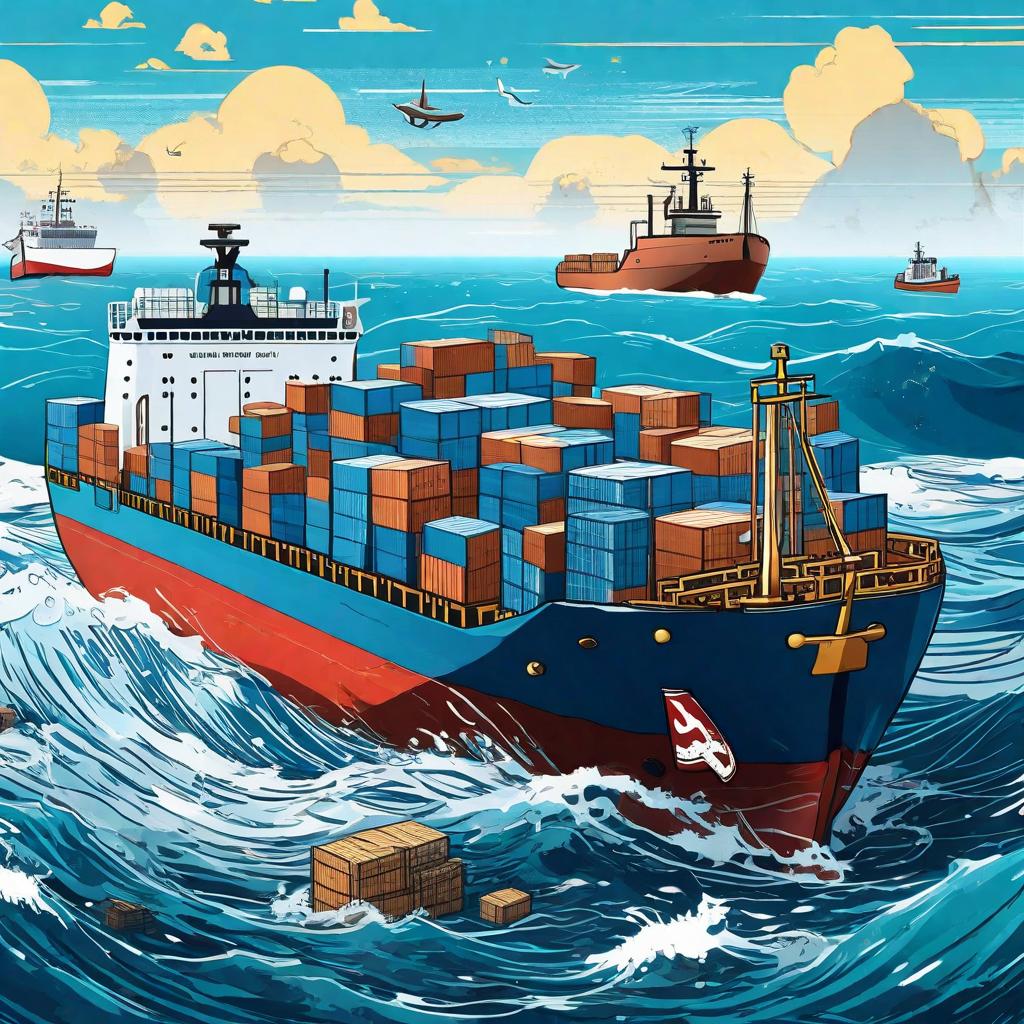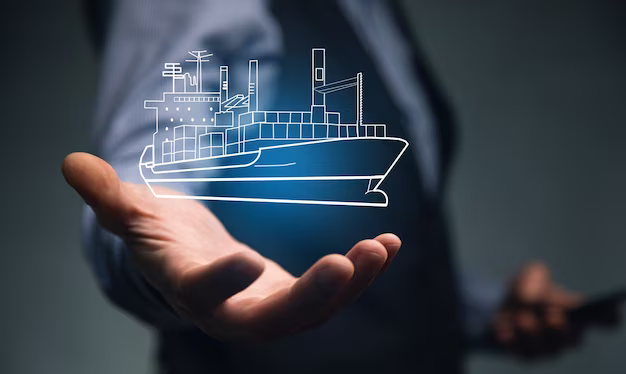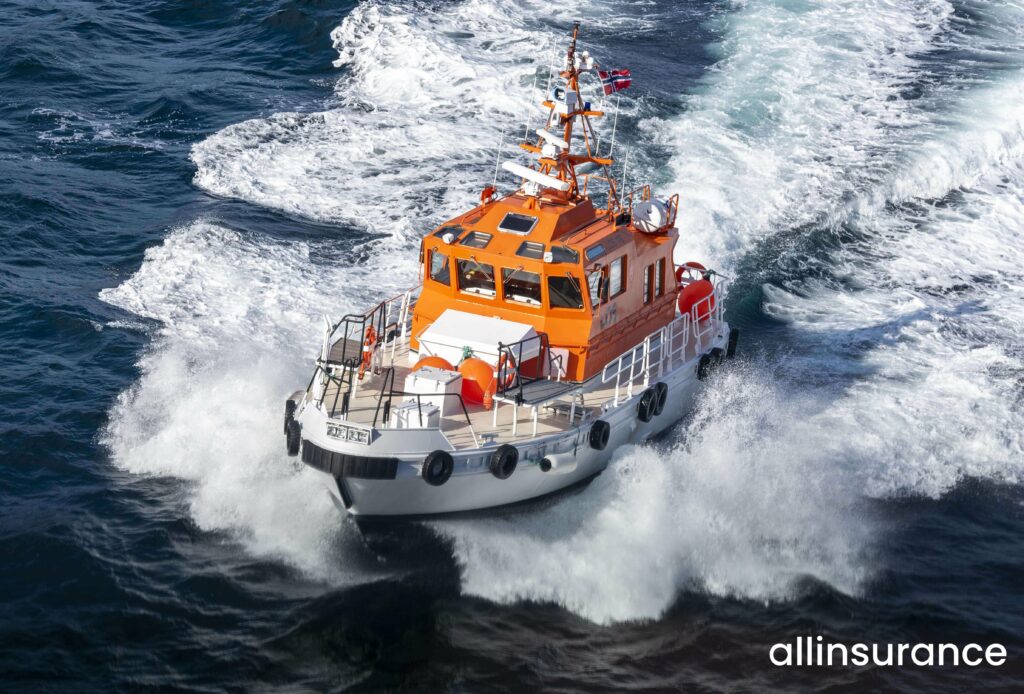What is Marine Insurance?
Marine insurance is a crucial financial safeguard for individuals and businesses involved in maritime activities. It is a specialized form of insurance designed to protect against the risks associated with shipping goods, vessels, and cargo across the seas. The primary purpose of marine insurance is to mitigate potential financial losses that can arise from unforeseen events during sea transport.
This type of insurance provides coverage for various aspects of marine-related risks, including damage to the ship or cargo, loss of goods, and liability for third-party damages. Insurance policies are tailored to address the unique challenges of the maritime industry, considering factors such as weather conditions, accidents, piracy, and other unforeseen circumstances that may endanger the safety of the vessel or its cargo.
This insurance plays a pivotal role in promoting international trade by instilling confidence in traders and shipping companies. It ensures that businesses can engage in global commerce with the assurance that their valuable assets and goods are protected against the uncertainties of sea transport. Whether it’s a single shipment or ongoing marine operations, having the right marine insurance coverage is essential for securing the financial well-being of those involved in the maritime sector.

Who need Marine Insurance?
This insurance is essential for a wide range of individuals and businesses involved in maritime activities.
- Individual buyer
- Manufacturer
- Shipowners
- Cargo Owners
- Freight Forwarders
- Transportation Businesses
- Maritime Trade Participants
- Import/Export merchant
- Bank
- Contractor
Overall, anyone with a vested interest in maritime trade or activities stands to benefit from the protective coverage offered by marine insurance.
What are the key benefits of Marine Insurance?
- Financial Protection: This Insurance provides financial coverage against losses or damages to ships, cargo, and other maritime assets, offering a safety net for unexpected events.
- Risk Mitigation: It helps mitigate the risks associated with maritime activities, ensuring that businesses and individuals can operate with greater confidence and security.
- Business Continuity: In the event of accidents, natural disasters, or other maritime incidents, this type of Insurance supports business continuity by covering the costs of repairs, replacements, or financial losses.
- Legal Compliance: Many shipping contracts and international trade agreements require the parties involved to have adequate Marine Insurance, ensuring legal compliance and facilitating smooth transactions.
- Global Trade Support: This Insurance is crucial for the facilitation of global trade by providing assurance to shippers, receivers, and other stakeholders involved in the transportation of goods across international waters.
- Peace of Mind: With this Insurance, individuals and businesses can enjoy peace of mind, knowing that their maritime assets are protected, and financial losses are minimized in case of unforeseen events.
Why Buy Marine Insurance?
This insurance provides financial protection for shipments of goods, vessels, and related activities during transit across the seas. Here are some compelling reasons to consider purchasing insurance:
- Financial Safeguard: Marine insurance acts as a safety net, protecting against potential financial losses arising from damage, theft, or loss of cargo during transportation.
- Risk Mitigation: Shipping involves various risks such as adverse weather conditions, accidents, or unforeseen events. Marine insurance helps mitigate these risks, ensuring that financial losses are minimized.
- Legal Compliance: In many cases, marine insurance is a legal requirement. It ensures compliance with international shipping regulations and provides assurance to stakeholders that your operations meet necessary standards.
- Peace of Mind: Knowing that your cargo is covered by marine insurance brings peace of mind. It allows businesses to focus on their core operations without worrying about the uncertainties of the shipping process.
- Business Continuity: In the event of a loss or damage to goods during transit, marine insurance facilitates quick recovery and helps businesses maintain continuity by covering the financial aspects of the loss.
- Customized Coverage: Marine insurance policies can be tailored to specific needs, providing flexibility to businesses based on the nature of their cargo, shipping routes, and other unique requirements.
- Competitive Advantage: Having marine insurance in place can be a competitive advantage in the market. It reflects a commitment to responsible business practices, which can enhance relationships with clients, partners, and stakeholders.
- Global Operations Support: For businesses involved in international trade, marine insurance is essential. It supports global operations by providing coverage for goods transported across different countries and regions.
- Cost-Effective Solutions: The financial implications of a loss at sea can be substantial. Marine insurance offers a cost-effective solution to manage these risks, allowing businesses to allocate resources more efficiently.
- Comprehensive Protection: Whether it’s goods in transit, vessels, or related liabilities, marine insurance offers comprehensive protection, ensuring that various aspects of maritime operations are covered.
By considering these reasons, businesses can make informed decisions about acquiring marine insurance to safeguard their interests in the dynamic world of shipping and transportation.

What is not covered in a Marine insurance policy?
This insurance provides crucial coverage for a wide range of risks associated with shipping, there are certain exclusions and limitations. Here are some common scenarios or events that may not be covered :
- Issues Due to Delivery of the Goods:
- Damage or losses that occur after the successful delivery of the goods to their intended destination may not be covered.
- Poor Quality of Goods:
- Damage caused by the inherent poor quality or defective nature of the goods being transported may be excluded.
- Intentional Loss:
- Losses or damages deliberately caused by the insured or any party with an interest in the shipment may not be covered.
- Repairing:
- Costs associated with repairing or correcting manufacturing defects or damages that existed before the goods were shipped might not be covered.
- Renovation:
- Expenses related to the renovation or improvement of the shipped goods may fall outside the scope of coverage.
- Bankrupt Due to Personal Reasons:
- Financial losses resulting from the insolvency of the insured due to personal reasons may not be covered. However, bankrupt arising from external economic factors or industry trends might be considered differently.
It’s important for businesses and individuals to carefully review the terms, conditions, and exclusions specified in their insurance policies. Additionally, customized coverage options can be explored to address specific risks that may not be adequately covered by standard policies. Understanding the exclusions helps insured parties make informed decisions and take additional measures to mitigate risks that fall outside the scope of their insurance coverage.
Frequently Asked Questions
What does marine insurance typically cover?
Marine insurance typically covers various risks associated with the transportation of goods through sea routes. This includes protection against loss, damage, or theft of cargo during transit.
Who needs marine insurance?
Anyone involved in shipping or transporting goods via sea routes can benefit from marine insurance. This includes importers, exporters, shipping companies, and businesses engaged in international trade.
What are the key considerations when choosing marine insurance?
Factors to consider include the type of cargo, shipping routes, the value of goods, and specific risks associated with the transportation. Evaluating these aspects helps in selecting a suitable marine insurance policy.
Are all types of goods insurable under marine insurance?
While many types of goods can be insured under marine insurance, there might be exclusions or limitations for certain high-risk or hazardous materials. It’s essential to clarify these aspects with the insurance provider.
Conclusion
In conclusion, marine insurance is essential for anyone involved in international trade and shipping. It acts as a safety net, providing financial protection against the unpredictable risks of transporting goods across the seas. Whether you’re a shipper, importer, exporter, or engaged in any maritime activity, considering marine insurance is a smart step to secure your interests and investments on the high seas. Make an informed decision, understand the policy details, and sail smoothly with the assurance that your cargo is protected against the uncertainties of the marine environment.


